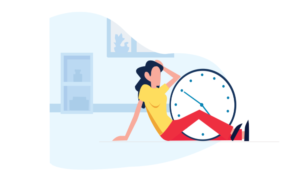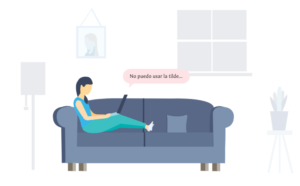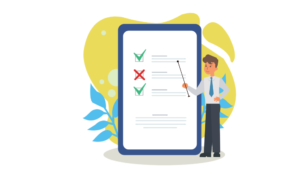![My 5 Years Language Learning Journey [15 Q&A]](https://togetherwelearnmore.com/wp-content/uploads/2021/05/My-5-Years-Language-Learning-Journey-15-QA.png)
The year 2020 marked my fifth year since I began my language learning journey. When I look back it’s like seeing a chart with its own ups and downs. Honestly, I didn’t know I’d last this long but I guess the combination of hard work, a bit of smart thinking (I think 😁), motivation, and stubbornness do pay off.
I want to make this post a bit different. Instead of making it like a normal blog post, I want to do it in the frequently-asked-questions style. Before I begin, let me tell you this journey of mine doesn’t have a super happy ending yet. This is as realistic as it can get. Therefore, no sugarcoating.
Everyone has their own preference. While some may digest new knowledge faster than others, this is my pace. Let’s start!
Entertainment is the major reason. It all started when I was around 12 years old if I’m not mistaken. I used to watch lots of foreign dramas and cartoons. Here’s the list of some of the languages; English, Hindi, Tagalog, Spanish, and Japanese.
When I entered high school, the list had expanded to Korean, Arabic, and Thai.
At this stage, I became interested in language learning, and the first language I set my eyes on was Spanish. That was in 2008. I said to myself I’d love to learn this language one day.
It wasn’t until I finished my final year semester in university (2015) that I began learning the language.
At first, I just wanted to learn for fun but after a while, the thought of speaking in Spanish fascinated me. So, here I am 5 years later still trying to achieve it. I can proudly say I’m a language enthusiast.
Spanish and Arabic but my priority is Spanish. I didn’t learn both at the same time. I studied the latter when I was in secondary but decided to learn it again just because I felt like doing so.

Some people say don’t count the years it’s the hours you spend every day that matters. Oh well, when it comes to dedication the years also count, don’t you think?
So, I’ve been learning it 30 – 45 minutes in the morning every day for 5 years. I love starting my day that way when everything is fresh.
Pick the right resources and methods and stick to them. Sounds easy, doesn’t it? Well, you need to have a passion, purpose, goal, and plan.
First, do some research. Language learners’ blogs are a good start because they will help you shorten your time. These people share great resources and sometimes give a brief review of them. Second, create a plan. Third, follow and stick to your plan.

I remember wanting to learn Spanish because I loved the sound of it without knowing the name. To learn a language, it’s like a must to love it first. I mean, why would you want to learn something you don’t like, right?
For me, initially, I just want to be able to watch and understand series and songs without relying on subtitles. As time goes by, I realize I also want to be able to have smooth conversations with native speakers.
I set a long-term realistic goal which is to increase my knowledge of the Spanish language.
I created a fixable plan that I can easily follow and feel comfortable with. If the resources and methods I chose don’t produce fruitful results after quite some time you know what it means. It’s trial and error.
Finally, I always repeat and review what I’ve learned. This is super important. Don’t expect to just ‘get it’ because you won’t. Some new info will stick easily and some will sink in after a while. When I review back it turns out my understanding gets better and better. I guess that’s why people say repetition is the key.
Throughout the years I’ve changed my resources multiple times. Here’s what I currently use;
Monday
For vocabulary: Duolingo, Memrise, and Clozemaster.
For grammar: Gramática Española app. This is the StudySpanish app version solely for grammar. I only learn one topic. If it’s a long one I’ll just learn half and continue the rest the next day. If it’s quite difficult I’ll keep learning until I understand. Until then, no exercise.
Tuesday
For vocabulary: Duolingo, Memrise, and Clozemaster.
For grammar: Gramática Española app. I do the exercise (mini-test) for the topic I learn on Monday.
Wednesday
For vocabulary: Duolingo, Memrise, and Clozemaster.
For listening: Duolingo podcast. One story.
Thursday
For vocabulary: Duolingo, Memrise, and Clozemaster.
For listening: SpanishPod101 podcast. Sometimes, I do 2 episodes.
Friday
For vocabulary: Duolingo, Memrise, and Clozemaster.
For listening: Duolingo story. Usually, I do one. If I feel like doing more then I’ll do two.
Saturday
For vocabulary: Duolingo, Memrise, and Clozemaster.
For all skills except speaking: Butterfly Spanish on YouTube. Just one video. If it’s a bit long I’ll watch half and continue the other next Saturday.
Sunday
For vocabulary: Duolingo, Memrise, and Clozemaster.
For listening: Language Transfer podcast. Mostly I do two or three episodes. This is a new addition and I love it so far. Through it, I learned many things I didn’t realize before.
For the vocabulary, for example, Duolingo and Clozemaster, I play one round a day. As for Memrise, I set it to learn 5 new words a day. Before moving to a new topic I’ll review what I’ve learned so far. Not all at once though. Just bit by bit.

You might be wondering, no speaking practice? I do that, too. Just not as often as I should. I do chat with native speakers. If I don’t have the time to practice I’ll send them an audio recording and they’ll correct me from there.
I guess by now you realize that I like to keep everything short. That’s because I’ve tried the opposite before and it burnt me out. This works well with me. I know it’s pretty slow but hey, don’t spend all your passion and energy at once. Save a little for the next day, month, and year. You’ll need it.
There’s no definite answer to this. Some say 3 months, 6 months, etc. My answer would be it depends on how motivated and hardworking you are. If you’re such a person and together with a great study plan, the right methods, and resources, I think that estimated time is achievable.
If you’re a novelty you’re going to struggle a lot before you can get to the top.
It varies for everyone as it boils down to these four things; purpose, attention span, resources, and passion. Those who have a short attention span prefer to keep the hours to minutes. A minimum of 30 minutes a day is ideal for me.
15 minutes can be spent absorbing the new info and the rest can be used to put what you learn to practice. I’m not only referring to talking with natives but also putting your other skills (writing and reading) to the test.

Let’s say you’re using Memrise. Write down as many words you can remember and construct simple sentences you can use in everyday life. Record yourself reading those sentences. Then, ask your exchange partners to check both for any mistakes.
This way you’re not just improving your skills but forcing your brain to work as well trying to remember all the vocab you’ve been learning all this time. Say goodbye to being a receptive learner.
Someone who is learning for fun might find 30 minutes to be enough. But those whose purpose is for education, work, etc might find it not enough. Those who have a long attention span might prefer the long hours.
Good news for people with short attention spans, you can probably make it a bit longer if your resources are superb and engaging.
People say if you’re passionate about the language you’re learning, you won’t get bored. Wrong. Among these 4, I think the resources you choose play an important role. It may override other factors.
I think I’m somewhere between A2 and B1 levels in general. I haven’t taken any test to confirm that yet but if I’m being honest, the rate for all 4 skills is different.
Reading (B2) | Writing (A2) | Speaking (A1) | Listening (A2)
Well, I have quite a few natives who told me that my reading is good. Whenever I learn a new language, I prioritize my pronunciation a lot because if I want to start talking to natives at an early stage, I need to get it right. Butchering the grammar is worse enough and I don’t need to butcher the pronunciation, too.
Speaking. It’d be a lie if I said I don’t feel disappointed by my progress. I mean 5 years and still A1? I remember when I chatted with a native speaker and barely used Google Translate to understand what he wrote. I was racking my brain so much that in the end, when I didn’t know the word I just wrote in English (80% was in Spanish).
The result? I felt happy and my confidence skyrocketed. I believe if I keep practicing it’d make a huge difference. This is something I need to fix and add to my routines.
Yes, you can probably learn a few words. However, if you solely depend on that to make you fluent, I’m afraid you’re going to be disappointed. At some point, you’re going to want to start strengthening the other skills because frankly speaking, your language learning won’t be complete if you focus on just one direction.
Learning through music is a fun addition though.
I can’t say for the shy people in general but as a shy person myself, I’d say no. I think there are two types of shy people. One who is really shy who finds direct communication to be difficult and one who finds it challenging at first but manages to overcome and it actually builds their confidence.
Grammar without a doubt. It’s always either a problem with memorization or comprehension. Things like irregular verbs, por and para, subjunctive…even, preterite, and imperfect tenses can be confusing sometimes. ¡Que desastre!

When that happens, I do these 2 things:
In everything you do, try to appreciate and be grateful for small things. It’ll help you in the long run.
It gives me immense satisfaction knowing that I can definitely do this. It’s like a challenge to myself. I know I’m capable of learning more than just English so why not learn a few more?
As the owner of this language learning blog, I have the opportunity to do some reviews and through it, I’ve learned a few languages such as German, Italian, Thai, and Mandarin. I love and enjoy it every single time.
Ask yourself again and again if this is what you really want. There’s no ‘graduation’ in learning a new language. Even when you’re already fluent you need to constantly review so you don’t forget.
Somewhere in the process, you’re going to struggle. You’ll start questioning yourself. Even the thought of stopping seems ideal. For that, I’d like to quote what PolyglotTraining said,
"I pay a price now for results later, just keep going."
It reminds me how much of a waste it would be if I stopped. I’ve been this far and there’s no turning back. Don’t do things halfway. Don’t quit whenever the hurdle comes or when you hit the plateau.
Don’t fret if you can’t remember some rules or words even after reviewing them multiple times. Also, don’t forget to add elements of fun to your learning. You'll be more likely to stick to it.
Don’t feel like you have to be on all language learning platforms because you think it’s going to help you. It’s freaking tiring, trust me. Check them out only when you need a replacement.
Don’t be a stranger. Join a Facebook group(s) and ask for help if you’re stuck. They are more than willing to help.
So, what are you waiting for? Go. Start planning yours today. Happy learning!
Feel free to share your journey with us in the comments.
©2024 Together We Learn More
©2024 Together We Learn More